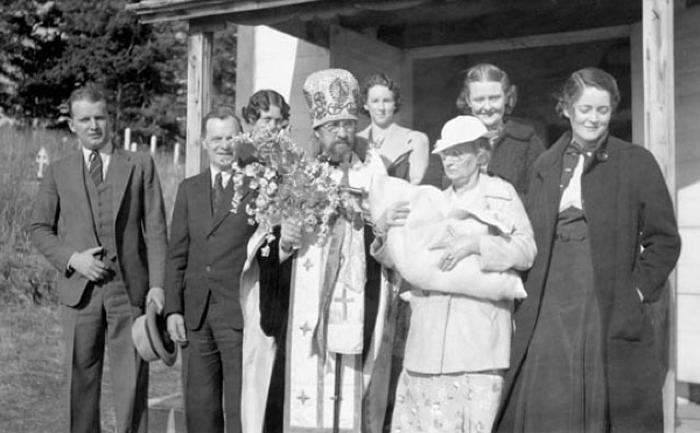Godparent — KRaasnaaq

Russian colonists introduced godparenting, a relationship between adults and children that has become second in importance only to parent-child bonds in Alutiiq communities. KRaasnaaq comes from a Russian word meaning “godparent.” Some Alutiiq speakers further differentiate between godmother and godfather with the alutiicized terms maamasinaq (“great mother”), and taatasinaq (“great father”), symbolizing the lifelong importance of godparents.
Today, parents choose both a godfather and a godmother for their child at the time of baptism. If the child is a boy, it is the father’s duty to choose the godparents. If the child is a girl, it is the mother’s duty. Godparents are typically not close relatives, but family friends or distant kin. Moreover, a child’s godmother and godfather are usually not related to each other. The practice strengthens social ties across unrelated or distantly related families. These ties are so strong that a kRaasnaaq’s children are considered a godchild’s siblings, and they are forbidden to date or marry.
The duties of a godparent begin at baptism and continue throughout life. Godparents are responsible for purchasing the blanket and clothing an Alutiiq baby needs for baptism, and the same-sex godparent provides the cross the baby will wear throughout life. The godparents also hold candles during the baptism and the confirmation of baptism that follows. During childhood, godparents take their godchildren to church and help to celebrate birthdays, name days, and Christmas.
